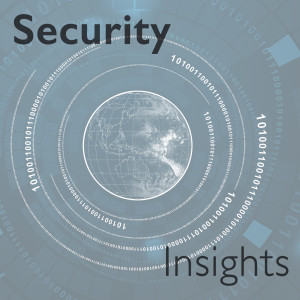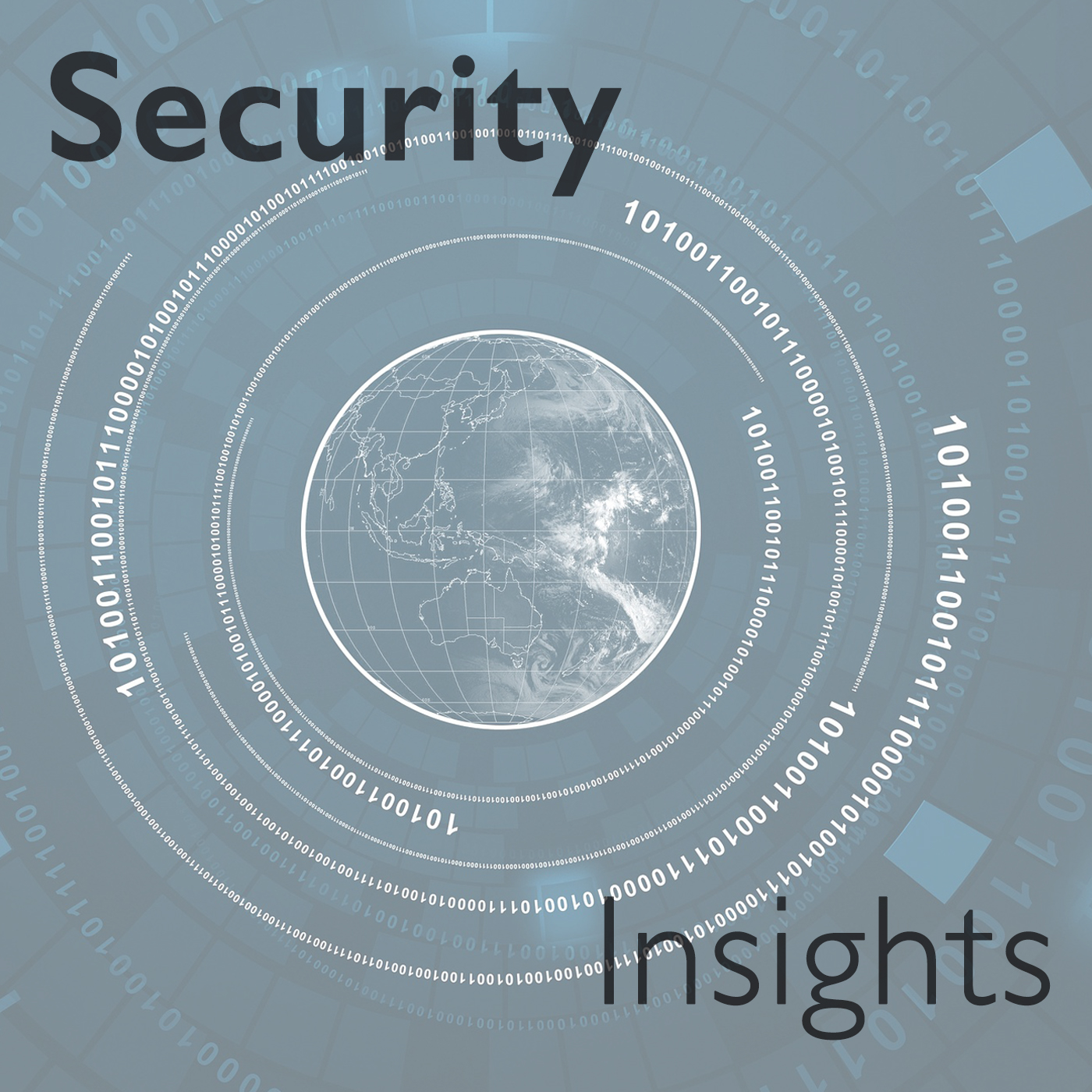Episodes

Thursday Feb 13, 2025
Fighting Ransomware, with Raj Samani
Thursday Feb 13, 2025
Thursday Feb 13, 2025
Ransomware remains one of the greatest cyber threats to organisations. Certainly, it is the threat at the top of most boards' agendas.
The reasons are clear enough: ransomware damages reputations, as well as the balance sheet. in the worst case scenario, a business might never recover from an attack.
And ransomware itself is becoming more sophisticated, and so more dangerous. Groups have moved on from simple phishing and RDP attacks to exploiting zero days. And they are as likely to threaten to release confidential information, as they are to encrypt it.
As our guest suggests, ransomware has moved from an attack on availability to an attack on confidentiality.
When it comes to advising on the ransomware threat, few are better placed than Raj Samani. Senior vice president and and chief scientist at Rapid7, Raj is also chief innovation officer at the Cloud Security Alliance, a special adviser at the European Cybercrime Centre and a co-founder of No More Ransom.
Here he discusses the changing ransomware threat, and how organisations should act when they are attacked, with Stephen Pritchard.

Thursday Jan 23, 2025
The eye of the storm: dealing with a cyber crisis
Thursday Jan 23, 2025
Thursday Jan 23, 2025
What happens when a cyber attack hits? What is it like to be in the eye of the storm, and how can security teams prepare?
A cyber attack is inevitably a highly stressful situation for everyone involved. But planning and exercising goes a long way to at least manage that stress.
Our guest for this episode is Dan Potter, senior director for resilience and cyber drills at Immersive Labs. He also has over 15 years' experience working in resilience in the financial services sector.
As he says, no playbook or incident response plan will be fully effective, unless the business takes the time to test it - and learn the lessons from the exercises they run.

Thursday Jan 09, 2025
CISO Interview: Jack Mersey Westbury Street Holdings
Thursday Jan 09, 2025
Thursday Jan 09, 2025
In a new series of interviews with cybersecurity leaders, we meet Jack Mersey, CISO at Westbury Street Holdings.
In an in-depth interview, he discusses threats -- from nation states to business email compromise -- security awareness and culture, and the challenges of ensuring security to a highly distributed business with 26,000 people and over 1000 sites that operates around the clock.
How does a CISO gain the confidence, and support, of colleagues from baristas and chefs to general managers and finance teams?
How can a security team operate internationally and keep headcounts low?
And how can cybersecurity leaders ensure security does not become a blocker?
Interview by Stephen Pritchard

Thursday Dec 19, 2024
Hacktivism's changing faces
Thursday Dec 19, 2024
Thursday Dec 19, 2024
Hacktivist groups have been around almost as long as the public internet.
But their make up, and their goals, have changed.
Hacktivism is no longer about "hacker" or counter culture or protest. Instead, it appears increasingly aligned with political objectives.
And some of today's groups at the very least aligned to, if not sponsored, by nation states.
Perhaps hacktivism is no longer the right term. Researchers are now talking about groups that set out to undermine trust in both the online and physical worlds, and carry out what some security researchers call “cognitive warfare”.
As part of its 2025 Security Navigator report Orange Cyberdefense tracked one hacktivist group in detail. Our guest is their head of security research. In this episode, he tells editor Stephen Pritchard what his team have discovered, from watching one particular group, and a renewed interest in hacktivism more broadly.

Thursday Dec 05, 2024
Security and AI: Jon France, CISO, ISC2
Thursday Dec 05, 2024
Thursday Dec 05, 2024
AI poses risks to security, through possible flaws in the applications themselves, and by AI being used by threat actors to develop malware and improve their targeting.
But there’s also plenty who argue that AI offers a chance to improve security. Certainly there are plenty of vendors promoting AI-enhanced versions of their products, promising to react faster, and pick up more threats.
Which side, though, will win out? And should cybersecurity professionals fear AI, or see it as an ally?
Our guest this week is Jon France, CISO at ISC Two. On the back of the organisation’s recent Cybersecurity Workforce Study, he discusses AI, good and bad, with editor Stephen Pritchard.

Thursday Nov 21, 2024
Cyber stress: are we burning out?
Thursday Nov 21, 2024
Thursday Nov 21, 2024
Is stress unavoidable, if you work in cyber?
And does workplace stress in the industry threaten security?
Stress and burnout among cyber teams are now a real worry for CISOs. And our guest for this episode argues that they should be a concern for boards too.
Stressed-out operators underperform and make mistakes. Burned out staff are more likely to leave, forcing firms to spend more on hiring and training replacements.
So how should employers spot the signs of stress? And what can we do as individuals to avoid burn out?
Our guest is Katie Maycock, of GYST Wellbeing.

Thursday Nov 07, 2024
Insights Interview: Geopolitics and cyber threats, with the ISF's Steve Durbin
Thursday Nov 07, 2024
Thursday Nov 07, 2024
Geopolitics is increasingly influencing cybersecurity.
The growth of online espionage, the potential for attacks by state actors, and governments turning a blind eye to cybercrime are all increasing risk.
At the same time, our growing dependency on connectivity, in government, in critical infrastructure and for day to day business, makes cyberspace an attractive target.
But it's not always been this way. In the early days of information and IT security, nation state threats were rare.
But, as Steve Durbin, CEO of the Information Security Forum points out, a lot has changed over the last few decades, and especially in the last few years.
In this Insights Interview editor Stephen Pritchard asks whether we are now more at risk than ever, if the current level of cyber threats could spill over into a more overt conflict and whether organisations have the resources to operate in a more dangerous world.

Thursday Oct 24, 2024
Deepfakes: uncovering the security risks
Thursday Oct 24, 2024
Thursday Oct 24, 2024
There's a lot being said (and written) about deepfakes.
And there is no doubt that they can now be very convincing, to the point where they can deceive the human eye.
But are deepfakes just a bit of fun, or do they pose real security risks? Do the dangers lie in manipulating public opinion through fake news, or can deepfakes be used to breach security systems.
Our guest, Dr Andrew Newell, academic researcher and chief scientific officer at iProov, argues that both are happening. Security teams need to take steps to block deepfakes from compromising identity systems, but we all need to guard against their wider influence.
Interview by Stephen Pritchard

Friday Oct 11, 2024
SaaS and security: shared responsibility, or hidden risks?
Friday Oct 11, 2024
Friday Oct 11, 2024
Software as a service, or SaaS, has been a huge success. There are now some 30 thousand SaaS applications on the market worldwide. These cover everything from niche requirements to running entire businesses.
The SaaS revolution has certainly brought benefits to businesses.
But are SaaS applications secure and robust enough? Supporters of SaaS argue that their applications are actually safer and more resilient than locally-run IT.
However, Cloud vendors, including SaaS companies, rely on the shared responsibility model. In simple terms, they look after the infrastructure, but the customer is responsible for their data.
This can leave organisations with real problems, if their data is inaccessible, or even deleted.
This could be down to human error, malicious actions, such as a ransomware attack, or even a SaaS provider failure.
Our guest today is Simon Taylor, Founder and CEO of HYCU. He believes that SaaS users need to take more control of their data, even when it's in a SaaS application.

Thursday Sep 26, 2024
Investing in cyber: should we follow the money?
Thursday Sep 26, 2024
Thursday Sep 26, 2024
Europe's cybersecurity industry is worth some $50bn and is growing at 10% a year.
It's also pretty fragmented – at least when it comes to vendors. Europe -- even more so than the US -- is now ready for market consolidation.
Some of that is being driven by acquisitions by the large technology firms, as they look to broaden their cybersecurity offerings.
But firms, and their investors, are looking for scale.
And CISOs are looking for simplicity and greater security. Could vendor consolidation achieve this? And what is the role of cybersecurity "platforms" as the industry changes shape?
Our guest is Mark Smith, of advisory firm Houlihan Lokey.
Interview by Stephen Pritchard.

